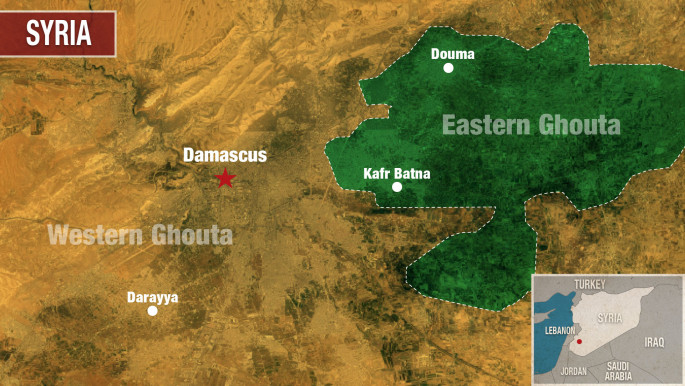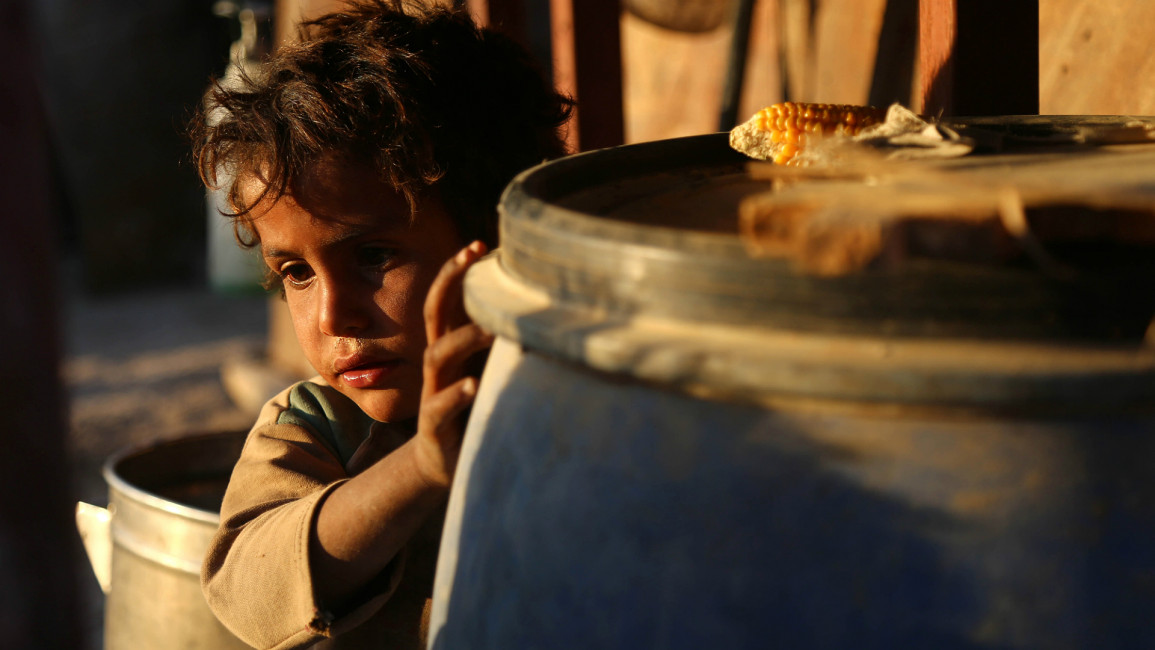Child malnutrition in besieged Eastern Ghouta is at 'highest rate ever recorded' since Syria war
Childhood malnutrition levels in Syria's Eastern Ghouta region, which has been under government siege since 2013, are at the highest levels recorded in the country since its six-year war began, the UN said on Wednesday.
The UN children's agency UNICEF said a November survey in the rebel-held area outside Damascus showed 11.9 percent of children under five were suffering acute malnutrition, "the highest rate ever recorded in Syria" since the conflict started.
Eastern Ghouta is one of the last remaining opposition strongholds in Syria. Recent weeks have seen an increase in violence and aid groups have expressed "grave" concerns over the deteriorating situation in the region.
| Read also: Eastern Ghouta: A ghetto of hunger and fear |
A UN World Food Programme report last week revealed that Syrians were eating rubbish, fainting from hunger and forcing their children to eat on alternate days because of the food shortage in Eastern Ghouta.
The report found that nearly 174,500 people trapped in the town of Douma since September have been forced to adopt emergency 'coping strategies'.
 |
|
These coping strategies include consuming expired food, animal fodder and refuse, going days without eating and begging and engaging in high risk activities to get food. There have been numerous reports of hunger-induced fainting episodes among school children and teachers.
More than four people have died from hunger, including a child in Douma who took his own life.
On Tuesday, the United Nations envoy said that Syrian regime forces had agreed to a ceasefire in the area.
"I was just informed by the Russians today at the P5 meeting that the Russians have proposed and the government has accepted a ceasefire on Eastern Ghouta because we were and are very concerned about it," Staffan de Mistura told reporters in Geneva, in the eighth round of peace talks aimed at ending the Syrian conflict.
"Now we need to see whether this takes place but it's not coincidental that this has actually been proposed and agreed upon just at the beginning of this session (of peace talks in Geneva)."
The Syrian conflict began when the Baath regime, in power since 1963 and led by Assad, responded with military force to peaceful protests demanding democratic reforms during the Arab Spring wave of uprisings, triggering an armed rebellion fuelled by mass defections from the Syrian army.
The brutal tactics pursued mainly by the regime, which have included the use of chemical weapons, sieges, mass executions and torture against civilians have led to war crimes investigations.

![Trump's warm greeting to Netanyahu contrasted with Kamala Harris's critical reception [Getty]](/sites/default/files/styles/image_330x185/public/2024-07/GettyImages-2162908988.jpg?h=69f2b9d0&itok=OLc5dL88)
![The brutal assault on Khan Younis has killed dozens and displaced thousands more [Getty]](/sites/default/files/styles/image_330x185/public/2024-07/GettyImages-2162526709.jpg?h=d3eda8cf&itok=n5N-o8p5)
![Members of the Algerian delegation threw roses into the Seine [Getty]](/sites/default/files/styles/image_330x185/public/2024-07/GettyImages-2162980872.jpg?h=199d8c1f&itok=h_3o_TOL)